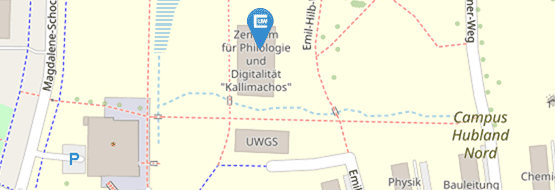About us
Geolingual Studies constitute a new interdisciplinary field of research integrating linguistics and geography. We focus on issues of sustainability, mobility, (social) equality, disaster risk management, security, etc. that affect our world today and are related to physical and socio-cultural space. By asking questions about the usage, perception, organisation, and evaluation of space, we take a comparative approach with the aim to arrive at a better understanding of the complexity of such spaces as large cities.
For the collection and analysis of large amounts of data, we integrate methods from the areas of artificial intelligence and digital humanities with those from remote sensing and linguistics (e.g., sociolinguistics and discourse analysis), so that a set of new methodologies can be developed. The establishment and advancement of this research endeavour has been funded within the “Momentum” programme of the Volkswagen Foundation.
We focus on social issues related to space. To start with this endeavour, we have established two broad research strands around megacities and momentous events. Megacities constitute highly dynamic spaces where sociocultural transformations occur on the fast-track. They are characterised by their large and diverse populations, their cross-border trade connections, and the challenges they face, e.g., shortages in housing facilities, shortages in material resources, crime, and energy shortage.
Momentous events are those that affect (urban) spaces whether they are planned, such as Olympic Games, festivals, exhibitions, political summits, or unplanned, such as terror attacks, shootings, disasters, pandemics. Issues of mobility, security, natural disaster risk management, trauma, etc. play an important role in this strand. Our research in both strands explores the role of language in the description, and construction of space by integrating linguistic methodologies, e.g., from sociolinguistics, (critical) discourse analysis, corpus linguistics, with those from remote sensing and data science.
See our general research and project page for a more detailed overview.
- Identity construction in Davao City and Hong Kong – Evaluating places in discourse (PI: Sabine Heps/Carolin Biewer)
- Negotiating place, migration, and ideologies in London during Covid-19 (PI: Zuzana Elliot)
- The digital urban conversation: Assessing the diversity of topics discussed in New York with geolocated Twitter data (PI: Richard Lemoine Rodríguez)
- The value of place in social distancing: Construing the complexity of the city via social media discourse (PI: Ninja Schulz)
- The voices of the displaced: Mobility and topics discussed by migrants from the 2022 war in Ukraine based on geolocated Twitter data (PI: Richard Lemoine Rodríguez)
Prof. Dr. Carolin Biewer (English linguistics) and Prof. Dr. Hannes Taubenböck (Remote sensing, German Aerospace Center) are the team leaders. Further members of the core team are Dr. Richard Lemoine Rodríguez, Dr. Ninja Schulz, Lisa Lehnen, M.A.
See “Team” for our profiles and further team members and associates.
- (Urban) sociolinguistics
- World Englishes
- Corpus linguistics
- Remote sensing
- Human geography
- Urban geography
- Psychology
- Data science
- NLP
We invite collaborations with researchers from all disciplines who are interested in developing theories and methodologies that lend themselves to comparative analyses of language and space. Regarding our current research foci and projects, we are particularly interested in working with researchers in the fields of media science, social science, political science, law, and experts on often neglected regions, especially in the Global South.
In the interest of applied approaches and to address social issues, we would also like to hear from non-academic professionals, such as urban planners, politicians, and educators, as well as citizens about the questions and practical concerns that are involved in the organisation and perception of space.
Contact us (geolingualstudies@uni-wuerzburg.de) and tell us how your research interests fit with ours and what are your ideas for potential collaboration. We also plan workshops and conferences to discuss our research, exchange approaches, and build new networks.
Have a look at WueStudy. We offer undergraduate and graduate seminars in both linguistics and geography that equip you with basic and advanced knowledge and competences for geolingual studies. The members of our core team also supervise theses on all levels of your studies for which you can do your own empirical research. You do not have to become an expert in all of the involved disciplines but should be open to specialising in one. If you would like to work with us as a student assistant, check our “news” page for vacancies or send us an informal notification of your interest.
We are interested in enlarging our team with early career researchers. If our research speaks to you and you would like to start a PhD in Geolingual Studies, please get in touch and tell us about your academic qualifications and research ideas. You should have a background in linguistics or remote sensing and ideally some programming skills or an interest in acquiring these. If not explicitly advertised in our news section, we will not be able to offer you a paid position but would be happy to advise you regarding external funding opportunities.
Contact us (geolingualstudies@uni-wuerzburg.de) and tell us about your concerns or questions. We also plan outreach events to introduce our research, discuss its applications, and answer your questions.


